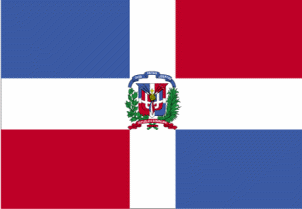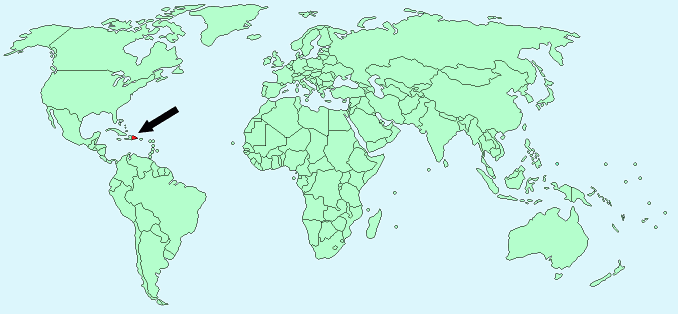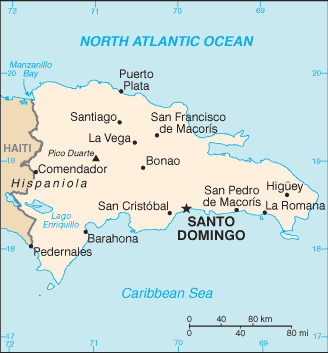Dominican Republic


Continent – North America
Region – Caribbean
Size – 48,730 km²
Geography – rugged mountains and fertile valleys
Language – Spanish
Religion – 95% Roman Catholic, 5% Other
Monetary Unit – Peso
Natural Resources – nickel, bauxite, gold, silver
Agriculture – sugarcane, coffee, cotton, cocoa, tobacco, rice, beans, potatoes, corn, bananas; cattle, pigs, dairy products, beef, eggs
Industry – tourism, sugar processing, ferronickel and gold mining, textiles, cement, tobacco

Neighbouring Countries – Haiti
Population – 10,349,741 (2014 estimate)
Population Growth Rate – 1.25%
Average Life Expectancy – 77.8
Capital City – Santo Domingo ( 2,907,100 )
Highest Mountain – Pico Duarte (3,175 m)
Longest River – Yaque Del Norte (298 km)
Climate – tropical, hot, wet 25°C to 30°C
Yearly Rainfall – 145 cm (approx) mostly May to November
Plant Life – typical rainforest vegetation, scrub woodland, savanna grasses, mahogany, pine
Animal Life – wild boar, small rodents
Bird Life – ducks, pigeons, dove, flamingo
Fish Aquatic Life – mackerel, mullet, bonito, yellowtail snapper
Harvard Reference for this page:
Heather Y Wheeler. (2015). Dominican Republic. Available: https://www.naturalhistoryonthenet.com/Facts_Figures/Country_Facts/dominican_republic.htm. Last accessed Monday, July 18, 2016
Facts and Figures Pages
